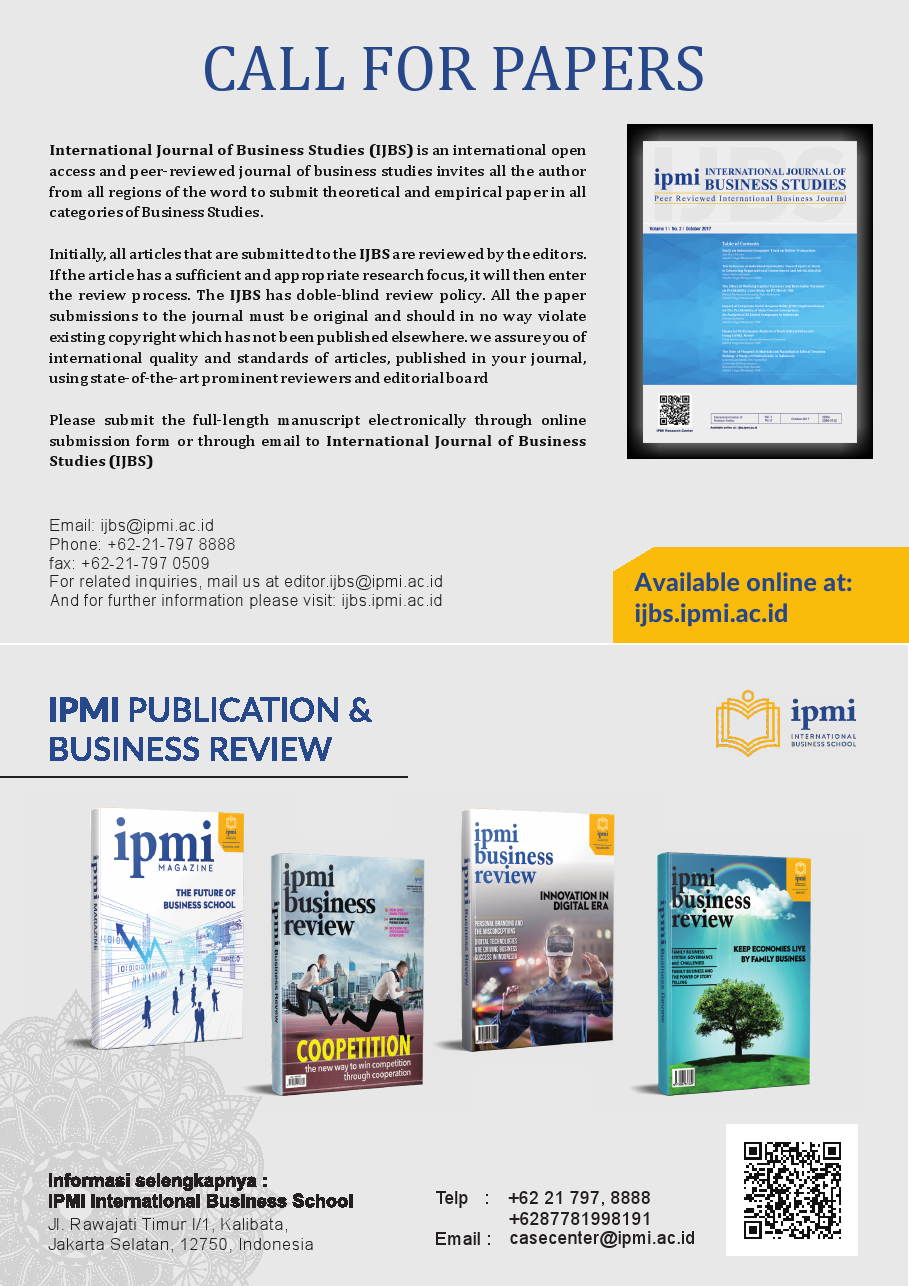The Impact of Fear of Missing Out on Impulsive Buying
A Study on the Twin Date Shopee Event in Indonesia
DOI:
https://doi.org/10.32924/ijbs.v8i3.342Keywords:
Fear of Missing Out, FOMO, impulsive buying, e-commerce, ShopeeAbstract
This study explores how the Fear of Missing Out (FOMO) affects impulsive buying during Shopee's Twin Date event in Indonesia. Employing the dimensions of a modified FOMO instrument, it scrutinizes the behavior of Shopee consumers in Indonesia when encountering this promotional event. The primary objective is to dissect customers' FOMO and its repercussions on impulsive purchases within Shopee Indonesia's twin date event, utilizing a modified set of indicators derived from prior research. Data was gathered through a well-organized survey given to 260 Shopee customers who participated in the Twin Date event. The study utilized Partial Least Squares Structural Equation Modeling (PLS-SEM). The result of this study reveals that FOMO significantly influences impulsive buying. However, this study's limitation is its exclusive focus on the impact of FOMO on impulsive buying. It overlooks other variables like price, product quality, brand trust, and consumer preferences, which also play pivotal roles in influencing consumer purchasing behavior. These factors must be revised to ensure a comprehensive understanding of consumer behavior on e-commerce platforms. Thus, the study underscores that alongside technical and functional aspects, FOMO reflects its contribution to impulsive buying during promotional events such as Shopee's twin date event.
Downloads
Submitted
Accepted
Published
How to Cite
Issue
Section
License

International Journal of Business Studies by Sekolah Tinggi Manajemen IPMI is licensed under a Creative Commons Attribution-ShareAlike 4.0 International License.
Authors who publish with this journal agree to the following terms:
1. Copyright Transfer Agreement Form can be downloaded HERE.
2. Authors retain copyright and grant the journal right of first publication with the work simultaneously licensed under a CC BY-SA Creative Commons Attribution-ShareAlike 4.0 International License that allows others to share the work with an acknowledgement of the work's authorship and initial publication in this journal.
3. Authors are able to enter into separate, additional contractual arrangements for the non-exclusive distribution of the journal's published version of the work (e.g., post it to an institutional repository or publish it in a book), with an acknowledgement of its initial publication in this journal.
4. Authors are permitted and encouraged to post their work online (e.g., in institutional repositories or on their website) prior to and during the submission process, as it can lead to productive exchanges, as well as earlier and greater citation of published work.














